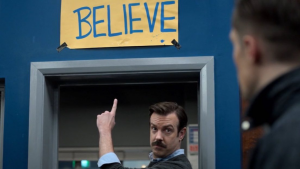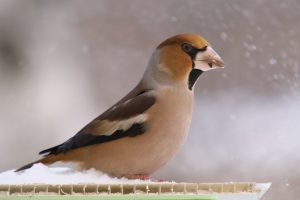 What does science have to tell us about writer’s block?
What does science have to tell us about writer’s block?
A couple of years ago, Sarah J Ahmed and C Dominik Güss from the University of North Florida published a paper, An Analysis of Writer’s Block: Causes and Solutions, in the Creativity Research Journal (£/academic access required). It’s a fascinating read that has quite a lot to teach us about writer’s block and its potential solutions.
Ahmed and Güss recruited both fiction and non-fiction writers via various writing organisations, such as Horror Writers of America, Romance Writers of America, Technical Writers Association and Travel Writers of America, and surveyed them about their experiences of writer’s block and the things that they did to tackle it.
They wanted to find out:
- The most common causes of writers block.
- How long the blocks lasted.
- Which stages of writing the blocks occurred in.
- Whether there was a relationship between the cause of the block and the stage of writing it occurred in.
- What common solutions writers used to break the block.
- How the responses of the professional writers compared to the semiprofessional writers.
The paper’s long, so I’m just going to look at the causes and solutions section, though I might address the others in my next newsletter.
I think it’s worth noting that these results are for professional writers such as journalists or marketers, full-time published authors, or university level writing teachers; and semiprofessional writers who have published their works, had ten years or more of “serious writing experience”, or write full-time during retirement. There were too few aspiring writers to draw meaningful conclusions, and no students or other classes of beginners.
This means that these people have had time to understand their own blocks and the solutions that work for them. I suspect the results would be different for less experienced writers, but there’s much to be learnt from the pros and semipros.
What causes writer’s block?
Ahmed and Güss define writer’s block as “a period during which a competent writer cannot produce new material” and describe some writers’ experiences, demonstrating the varied nature writer’s block:
some writers have described struggling with developing new ideas despite retaining their ability to construct a paragraph fluidly, others have reported the opposite problem. Authors with writer’s block can experience diverse struggles with the same aspect of the writing process and combined sub-tasks necessary to create the final product differently.
They describe the four main types of causes of writer’s block:
- Physiological causes: Stress, anxiety, extreme emotional states such as grief, mental or physical health issues, and exhaustion.
- Motivational causes: Fear of criticism, performance anxiety, and lack of enjoyment.
- Cognitive causes: Perfectionism, problems associated with over-planning or under-planning, and rigid thinking, such as forcing a story to move in a certain direction.
- Behavioural causes: Procrastination, interruptions to writing, and being too busy to write.
The most common causes of writer’s block “reported by approximately 42% of writers were physiological, such as life stress, general anxiety, depression, and burnout”.
The full results were:
Physiological
- Frequency: 42 per cent.
- Defined as: Stress, anxiety, intense emotions.
- Examples: “Depression,” “I have a harder time writing when mental or physical illness there is high stress in my life,” “I have health issues,” “A stressful life event leads to physical and emotional exhaustion”.
Motivational
- Frequency: 29 per cent.
- Defined as: Fear of criticism or rejection.
- Examples: “Pressure to perform well,” “Receiving critical performance anxiety, or loss of feedback,” “Stifled by an unnerving experience enjoyment with a writing group”.
Cognitive
- Frequency: 13 per cent.
- Defined as: Perfectionism, problems due to errors in planning (not planning sufficiently or too fixated on an outcome), rigid thinking.
- Examples: “Perfectionism,” “Not having planned well enough in advance,” “The block is related to the work itself rather than outside influences”.
Behavioural
- Frequency: 11 per cent
- Defined as: Procrastination, being too busy to write
- Examples: “Busy promoting books #1 and #2, no time to write #3, demanding professional work schedule diverting attention from creative work, change in writing routine,” “Stressful life event – just being busy and having lots of other obligations build-up”.
Some people, 5 per cent, reported that more than one factor was at play.
I think this is really interesting, not least because we often think of writer’s block as intimately linked to procrastination and perfectionism, but for this sample, that wasn’t so much the case.
Rather, the most common cause was a heightening of emotional and/or physical states in a way that impaired the ability to think and write, but which wasn’t context-specific. We need some level of stimulation in order to perform well on cognitive tasks, but if we have too much then “memory, information processing, and executive functioning” are impaired. Too little, and we become bored and disengaged.
Stress, high emotions, ill-health or exhaustion all push us out of that Goldilocks zone and into a state where it’s harder for us to write. So it makes a lot of sense that physiological causes are the most common — we’re all subject to these things, one way or another, and because they aren’t context-specific, they are hard to completely avoid.
I’m also not surprised that motivational causes — context-specific “fear of evaluation, writing anxiety, and decreased intrinsic motivation” — came in at second place.
Ahmed and Güss say:
Evaluation anxiety exhibits a negative relationship pattern with creativity and routine problem-solving tasks. Generalized stress or anxiety, such as life-event or time pressure stress, affects people in generally the same way regardless of perceived self-efficacy [confidence in your ability to perform a task]. However, evaluative stress is most detrimental to writing when a writer has low levels of writing efficacy and enhances writing when a writer has high levels of writing efficacy, likely because someone with high levels of writing efficacy, or competence, would have higher levels of writing confidence and therefore would interpret the challenge as less threatening.
So, the less you believe in your ability to write, the harder writing gets.
This is what I experienced last year with Tag: After a particularly difficult round of feedback, I lost faith in myself. I felt completely stuck and really didn’t want to go back to work on it because I couldn’t see how to fix it.
Now, looking back over my writing life, I can safely say that I’ve definitely suffered all four types of writer’s block. Cognitive and behavioural blocks earlier in my career, when I had fewer tools to tackle my planning problems and was generally too busy to write because running my own business took up every waking second. Then physiological and motivational writer’s block in more recent years when I had those other blocks under more control both because my domestic situation was much better (I got married!) and I’d learnt how to deal with them.
So what about solutions?
Ahmed and Güss asked their participants to share and rate the things that they had done to try to shift their block, and then analysed only the most effective suggestions. That resulted in a list of twelve possible options:
- Take a break from writing: “Stop writing, decide tomorrow is another day, and walk away from the computer until the next day.” (26%)
- Work on a different writing project: “Jump from the work on which I’m currently engaged to another.” (13%)
- Keep writing: “Force myself to write to a certain page number” (12%)
- Revise or reread current work or skip ahead to work on a later section: “Reread notes or drafts” (10%)
- Read a book or watch a movie: “I read the work of authors I admire to become inspired.” (10%)
- Take a walk: “I go for a walk” (6%)
- Discuss ideas with others: “Ask for advice. See what other people think. While you usually won’t use what they suggest their ideas can kickstart you brain.” (8%)
- Change writing location or writing method: “Switch up locations or methods of writing – write using a pen, a typewriter, etc.” (6%)
- Exercise: “Exercise/movement” (3%)
- Research: “Researching relevant or related topics” (3%)
- Eat or drink something: “Drinking coffee or snacking” (2%)
- Meditate/do yoga: “Meditate for five minutes” (1%)
Personally, I’ve done 1, 2, 3, 6, 7, 8, 9, and 10 at different times, and generally find all of them have worked, though sometimes I need to chain them together. So if keeping writing doesn’t work, then I’ll take a break and go for a walk.
What do you think of these solutions? Have you tried any of them?
The next time you get blocked
The next time you find yourself at an impasse, you can sit down with a cuppa and think about which type of block you’re dealing with. What factors are affecting your ability to write? Are you dealing with a physiological, motivational, cognitive or behavioural problem?
Once you’ve worked that out, you can more easily select a potential solution from the list to try out. Perhaps if the cause is physiological, say you’re too tired or too stressed, then taking a break is the most sensible course of action. Motivational issues might be best addressed by talking to others or revising. If the problem is cognitive, maybe pushing through or doing more planning would help. And if it’s behavioural, perhaps again pushing through or doing research might help.
Ultimately, information is empowering. Understanding the nature of your block gives you a clearer idea of what might unblock you.
And, finally, remember to believe!
{ 0 comments }







